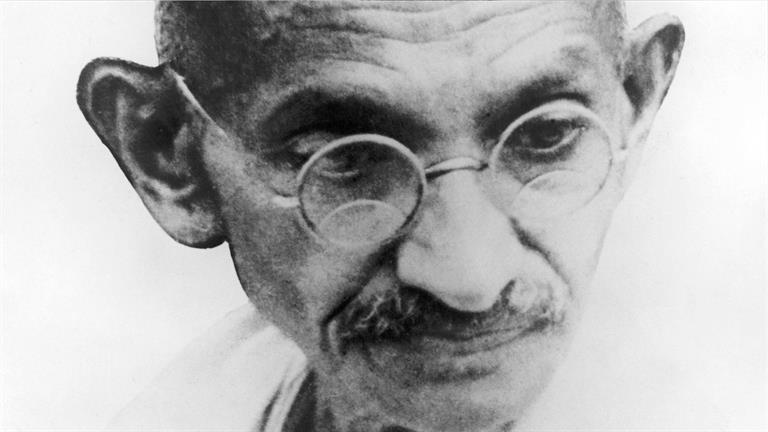Where Is Gandhi Today?
Where Is Gandhi Today?

In 1959, Dr. Martin Luther King, Jr. visited India. On the eve of his departure, he was asked a question, which, ironically, was considered cynical at the time but is increasingly relevant now. The question was “Where is Gandhi today?”
Equally relevant was Dr. King’s reply. “If humanity is to progress, Gandhi is inescapable. He lived, thought, and acted, inspired by the vision of humanity evolving toward a world of peace and harmony. We may ignore him at our own risk,” he said.
This morning, I remembered Gandhiji, for of course it is bapu’s 146th birth anniversary. The sad reality, however, is that Gandhiji -- once omnipresent in our collective national conscience -- is being relegated to the day of October 2nd. Dr. King’s words ring true, “we may ignore him at our own risk,” I mutter to myself as I shudder at the developments of the last few days, and what they mean for the India that we are making.
On the week of Gandhi’s 146th birth anniversary, a mob beat to death a fifty five year old Muslim man and critically injured his son after rumours surfaced that the family was eating beef. BJP leaders from UP, where the murder took place, condoned or at least excused the violence.
Vice President of the BJP’s west UP unit Shrichand Sharma said “when we hurt people’s sentiments, such clashes take place. This was not a communal riot. The Hindu community worships cows. Whose blood won’t boil if they see cow slaughter.”
A former legislator from Dadri Nawab Singh Nagar spoke in the same aggressive vein maintaining that the family was at fault. “It is obvious that such an incident will lead to anger among people and there will be communal tension. If this was the case, the family is in the wrong. If they have consumed beef, they are also responsible. This is a village of Thakurs and they express their sentiments in a very strong way. If they have done this, they should have kept in mind what the reaction would be,” he said.
The above is not an isolated incident. It is the face of India today. Dadri today, Muzaffarnagar yesterday, Trilokpuri, Godhra, Kokrajhar (... the list goes on) the day before. Violence, spurred on by hatred, is becoming the reality of everyday India.
We know what our politicians have had to say about the incident (and others like it), but what would Gandhiji have said?
“Anger and intolerance are the enemies of correct understanding.”
“Intolerance betrays want of faith in one’s cause.”
“Intolerance itself is a form of violence and the obstacle to the growth of a true democratic spirit.”
“Religions are different roads converging upon the same path. What does it matter that we take different roads, so long as we reach the same goal?”
I smile. “Tolerance” I mutter. But then I remember Gandhiji’s words again and I realise that our politicians do they think they are preaching tolerance.
Many agree with our Culture Minister Mahesh Sharma’s assertion that the Ramayana and the Mahabharata are central to the soul of India but the Quran and the Bible are not. This, is tolerance, according to our politicians: the assertion that one faith should be accorded priority over others.
No wonder Gandhiji did not like the word tolerance. “I do not like the word tolerance, but could not think of a better one. Tolerance may imply a gratuitous assumption of the inferiority of other faith’s to one’s own, whereas ahirhsa teaches us to entertain the same respect for the religious faiths of others as we accord to our own, thus admitting the imperfection of the latter.”
How have we gotten so lost? How have we gone from the country of Ahimsa -- a concept that inspired thousands of people the world over, sparked off the civil rights movement in America, and the anti-apartheid movement in South Africa -- to brutal, cold-blooded violence?
“True ahimsa should mean a complete freedom from ill will, anger and hate, and an overflowing love for all.”
We couldn’t be further away from ahimsa if we tried, I think. And then I remember the most valuable words of wisdom by Gandhiji, “You must not lose faith in humanity. Humanity is an ocean; if a few drops of the ocean are dirty, the ocean does not become dirty.”
So where is Gandhi today? Everywhere. “We may ignore him at our own risk.”



